Your Puppy’s First Vet Visit: What to Expect & How to Prepare
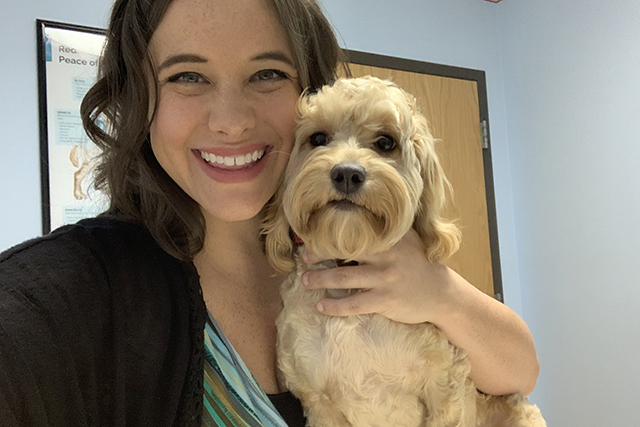
If you are getting a puppy, establishing care with a veterinarian and taking your puppy for his or her first vet visit is so important. Learn what to expect at your puppy’s first vet visit and how to prepare in this post, which is part of a year-long sponsored series with Southern Veterinary Partners.
We have had our cavapoo puppy Zelda for six months and are finding our way. I didn’t grow up with any pets, and Matthew only had an outside hunting dog, so we have been learning a lot. It feels a bit like becoming a parent for the first time – ha!
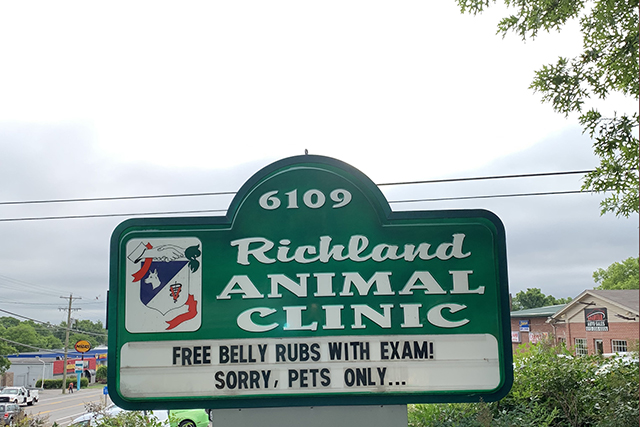
One of the many things we have had to learn about is everything related to care from a veterinarian. We have loved takin Zelda to Richland Animal Clinic in Nashville, which is part of Southern Veterinary Partners, a network of vets across the southeast. SVP’s mission is to be a community of veterinary teams providing personalized care with exceptional hospitality. We have definitely found that to be true at Richland. We truly adore everyone at the clinic!
To see if an SVP clinic is in your area, click here and enter your zip code.
What to Expect at Your Puppy’s First Vet Visit
If you are considering getting a puppy here’s what you can expect at your first vet visit.
Welcome to the clinic
Like a regular doctor’s office, you will fill out paperwork with your first visit about your puppy. Richland Animal Clinic has the option to fill it out online ahead of time, which was so helpful.
Meet with Technician
Then you will be shown into a room and speak with a technician who will ask a variety of questions about the puppy, as well as get the puppy’s weight and temperature, and trim the nails.
Exam by Vet
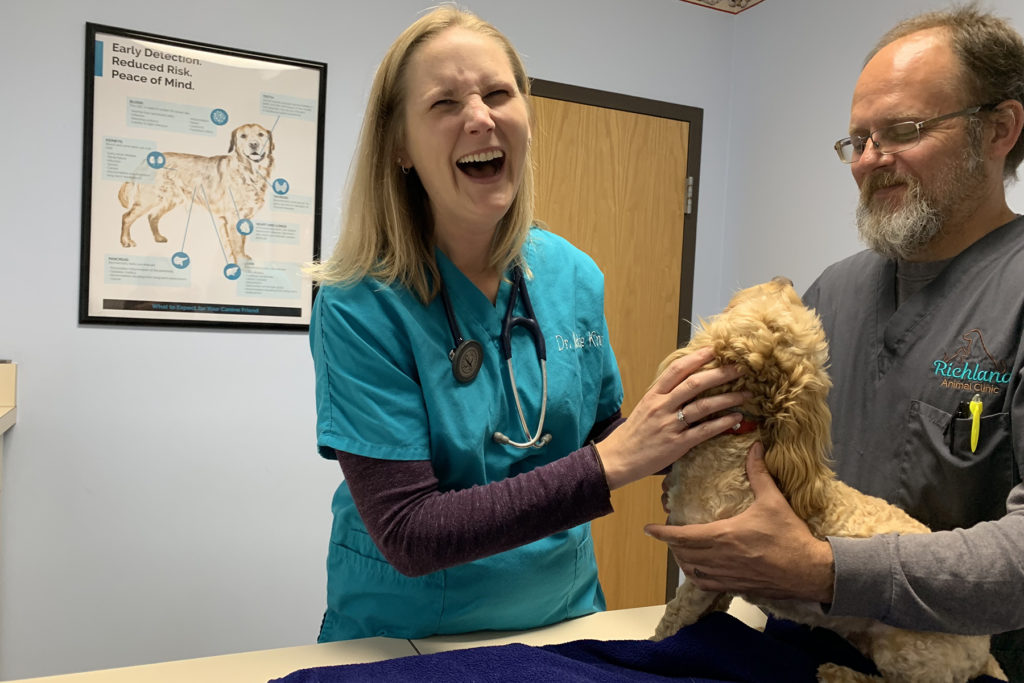
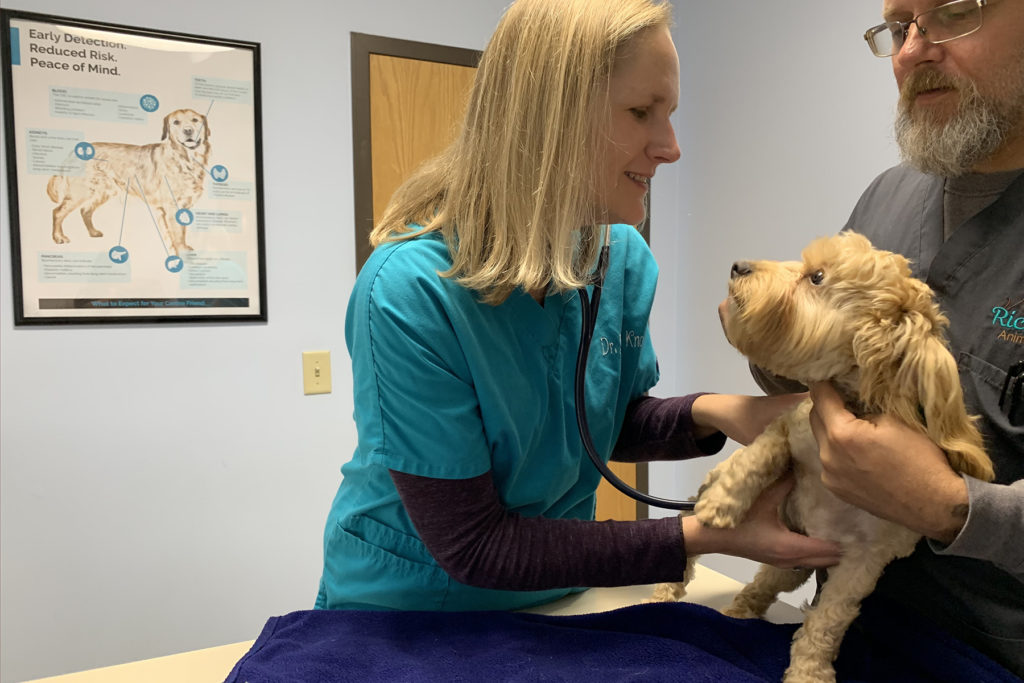
They will then receive a full nose to tail exam by a veterinarian checking for eye/nose/ear discharge, looking at teeth/gums, listening to heart/lungs, feeling the belly, and looking at skin, paws and boy/girl parts for abnormalities. Your veterinarian will discuss food/nutrition, dental care, vaccines, flea/tick/heartworm prevention, and they receive their first prevention doses free.
Puppy vaccines
Your vet will also give vaccines and discuss any additional questions or concerns. Vaccines are given every 3-4 weeks starting at 6-8 weeks old with the last round after 16 weeks. Based upon breed and lifestyle, they are now recommending some puppies receive vaccines through 20 weeks of age.
One of the things I love about Richland is their practice of “fear free” visits by giving puppies toys and treats during their visit so they have a positive association to the vet. When vaccines are given they give treats to use as a distraction so the puppy will still associate the visit as fun instead of getting pokes.
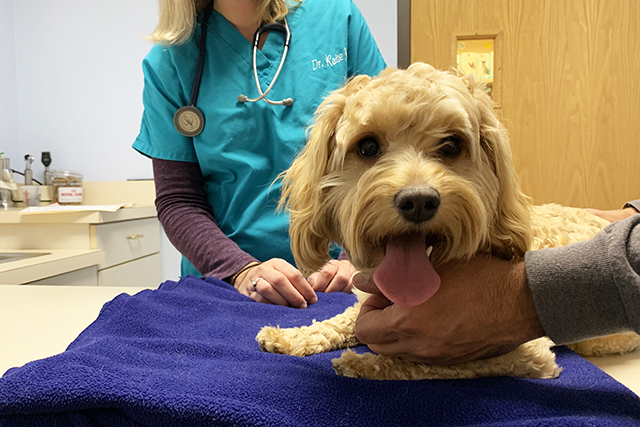
I also love the personalized care for both Zelda and our family. Each visit is tailored to the pet and pet-parents; each pet has a different need, behavior and lifestyle.
Tips for a Puppy’s First Vet Visit
Now that you know what to expect, here are 9 tips to have a great first puppy vet visit.
Call ahead and schedule an appointment.
I know this seems like a duh, but is overwhelming when you have a new puppy, so take care of this right away. If you live in the Southeast, look for a vet with Southern Vet Partners. When you schedule, share with the receptionist of any special needs your pet has (afraid of other dogs, anxious at the vet, dislikes nail trims, etc), or other issues (lots of scratching, chewing paws, coughing, etc). You can also schedule online.
Write down any questions/concerns you have
Just like when you go to the pediatrician for your kids, it is a good idea to have a running list. Most people forget what their questions are when they arrive, so it is good to have a list at home.
Fill out paperwork prior to arrival
Have your previous vet (if applicable) send over any medical records. If no previous vet, send any paperwork you have, or if not able, bring with you to your appointment. We brought our folder of information about Zelda that we got from her breeder.
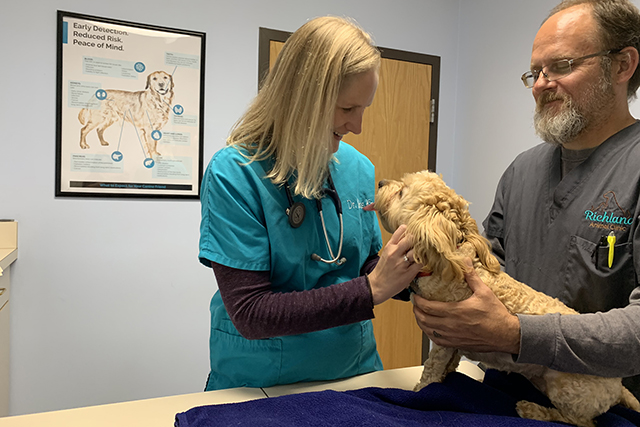
Bring puppy food and treats
If it’s close to feeding time, don’t feed at home. Instead bring your puppy’s food and/or favorite treats. They are more accepting to food rewards and distraction when they have their appointment. This is also helpful when going over your pet’s diet with your vet.
Bring anything that will make your pet comfortable
If your puppy has favorite blanket, toys, treats, laser pointer, etc., bring those to help make him or her comfortable.
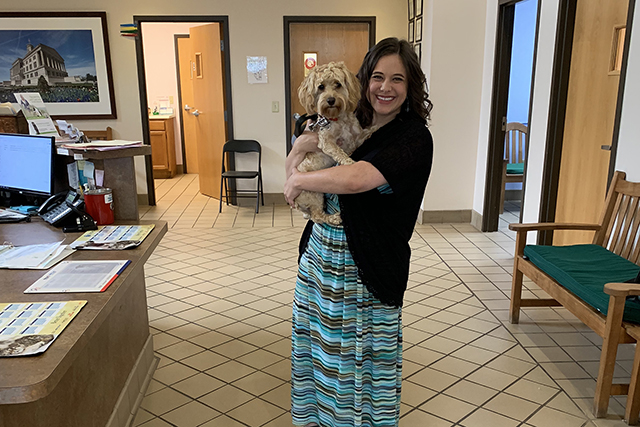 Arrive 10-15 minutes early
Arrive 10-15 minutes early
Arriving early gives you time to answer additional questions or paperwork. Your vet my also be able to see you sooner.
Ask all of your questions, even if you think it’s silly
We always have a lot of questions at the vet because we do NOT know what we are doing. No question is a dumb question and your vet or technician will be happy to help and guide you. If you think of something else after your appointment, don’t hesitate to email or call.
Schedule your next appointment before you leave
It’s easy to forget to call back and you don’t want to miss important vaccinations and prevention for your pet, so schedule your next vet visit before you leave. I love that Richland sends me emails to confirm our appointments.
Take a photo to document your visit
View this post on Instagram
I took this photo of Zelda right after she got home from her first vet visit and I was so glad I did. You will marvel how quickly your puppy grows and changes.
Click here to learn more about Southern Veterinary Partners and find the perfect vet for your puppy.
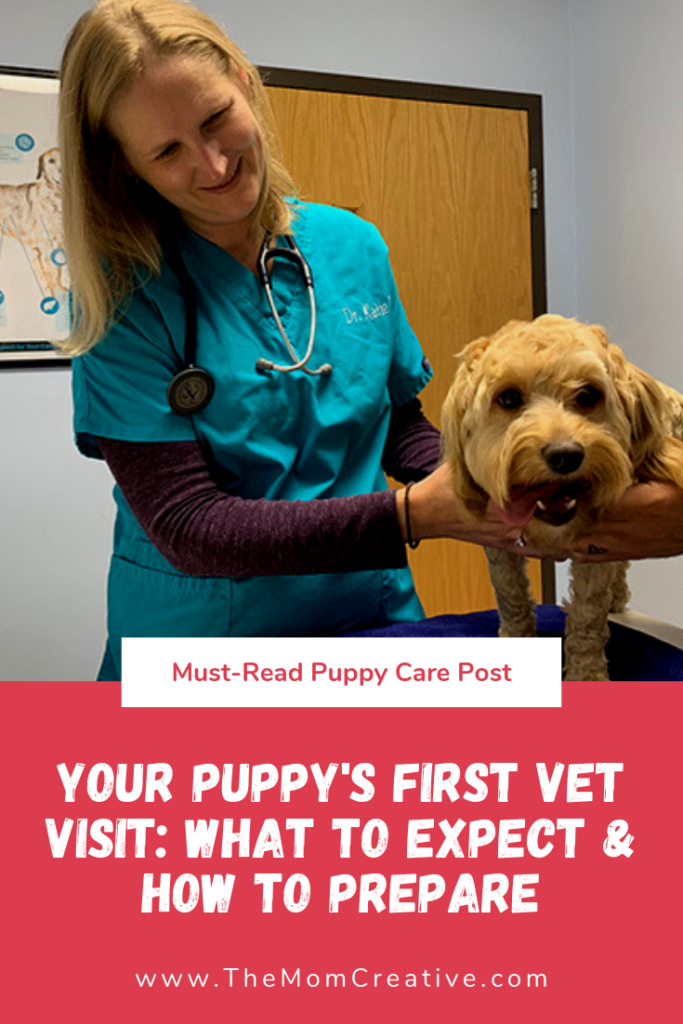

My puppy is only a few weeks old so we are preparing to go in for his first visit but we want to make it a comfortable experience for him so we don’t have trouble getting him there in the future. We will use your article to get an idea of how the first visits will go. I especially like your idea of using treats at the clinic instead of before so he associates rewards with being there.
I like your advice to arrive at the veterinarian’s office 10-15 minutes early so we’ll have plenty of time to fill out required paperwork and answer questions. I finally found a pet-friendly apartment that works with my budget, and I’m really excited about getting a puppy soon. Your article was helpful because your tips will help the process of going to the vet go as smoothly as possible!
I liked that you mentioned you need to remember to call for an appointment when thinking about taking your pet to the vet. In my opinion, calling in advance will reduce your waiting time and your pet’s stress, and will allow you to get out of there more quickly. My husband and I adopted a dog recently and we will make sure to schedule an appointment at every vet visit to reduce our baby stress.
My dog needs to be brought in vet because he has to be groomed and checked, that’s why I’m currently looking for a clinic. I’m glad you shared this; at least now I am aware that a technician will ask to be a variety of questions such as my puppy’s weight and temperature. It’s great to know that my dog will also be given a vaccine every 3-4 weeks.
Thanks for the tip that being a bit early can be beneficial when going to a veterinary examination. My dog hasn’t been eating much lately and I don’t want to wait until stops eating altogether. I want to know as soon as possible if what’s happening to her is normal or if it’s a sign of something bad.